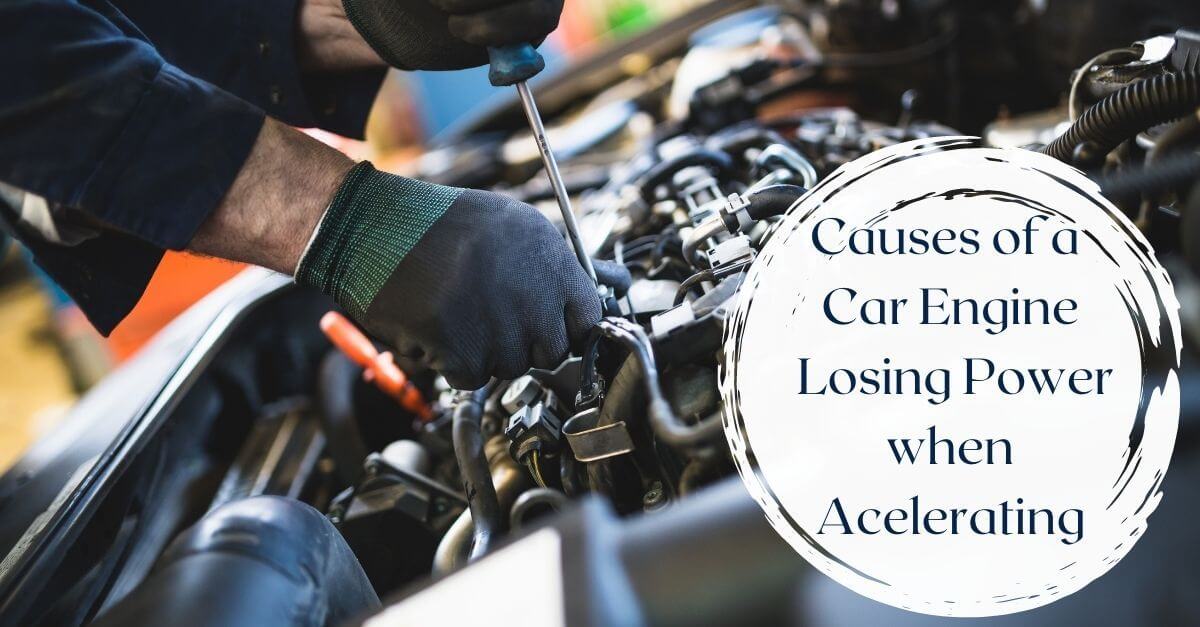Have you ever been in a situation when you see the RPM needle rising rapidly, but still the car loses power when you accelerate? Well, the first thing that comes to mind is low fuel.
But what if the fuel gauge also shows your vehicle has enough gas? Why is the car losing power?
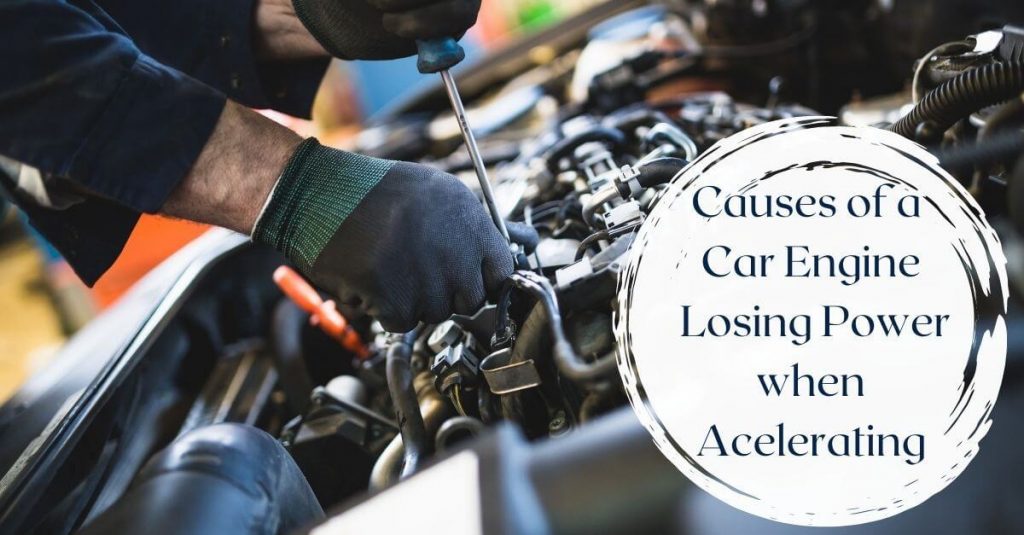
The primary reason why the engine lacks power when accelerating is because of a clogged or faulty fuel pump. Other common reasons are bad fuel injectors or malfunctioning MAF sensors.
Furthermore, there are plenty of other reasons why the car engine loses power when you accelerate it, and most of them are easy to fix.
This post rounds up nine main causes of a car losing power when you press the gas pedal. Also, I’ve listed a solution for every problem so that you get good power and acceleration from your ride.
Contents (Jump to Topic)
Causes of Car Losing Power When Accelerating
1. Clogged Exhaust Pipe
Modern cars have two types of exhaust systems, i.e., catalytic converter and muffler. The job of the muffler is to suppress the noise, whereas the catalytic converter reduces the black smoke and thus reducing environmental pollution.
If the exhaust pipe gets clogged due to any reason, it would surely weaken the engine’s performance, making the vehicle lose power when you accelerate. A clogged exhaust system can hinder the engine’s efficiency as well and has the worst effects if you ride a turbocharged car.
Solution:
The only solution to this problem is getting the exhaust pipe cleared. If you are a handyman, lift your car up on a floor jack, and inspect the exhaust pipe after removing it carefully. Or visit the nearest garage to get it fixed.
2. Bad Spark Plugs
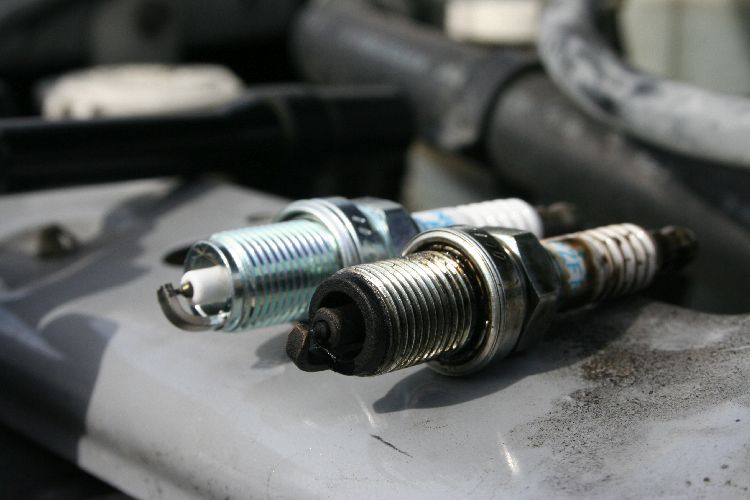
Image Credit: Wikimedia
Bad spark plugs can cause a massive power drop because they are responsible for combustion inside the engine. If all the spark plugs wear out, your ride won’t even start. Climate has a significant impact on the lifespan of these plugs, so they may misfire after some time.
Solution:
Remove the spark plugs, and clean them with a soft cloth. Then, reinstall them and take your car for a test ride. If the vehicle still loses power, you need to change the spark plugs.
Changing them is not a task, and you can do it at home. Inspect the plugs carefully, and buy the brand that your car manufacturer recommends.
3. Damaged or Clogged Fuel Pump
Whether you drive gasoline or a diesel car, this is a common problem you may experience. This is because the job of the fuel pump is to bring the fuel to the engine for combustion purposes. And when this pump fails to bring enough fuel, the vehicle starts losing power.
Solution:
Inspect the fuel pump and check if there are any signs of clogging. If you have no idea where the pump is located and how to check it, you need to see a local car mechanic. Get the pump replaced if it looks old and has worn out.
4. Mass Airflow Sensor Not Working
The Mass Airflow Sensor or the MAF is responsible for feeding the engine with a mix of fuel and air required for combustion. And when this sensor stops working due to any reason, the performance of your vehicle drops rapidly.
The sound of the engine also changes as it gets less fuel and air, so one can easily guess if this is the case with their vehicle by listening to the engine noise.
Solution:
Changing the MAF sensor is something you should leave on the professionals because there is a lot of wiring and other tasks involved. I would suggest towing the vehicle to the garage, as driving it in such a condition can worsen the issue.
5. Dirty or Worn-Out Air Filter
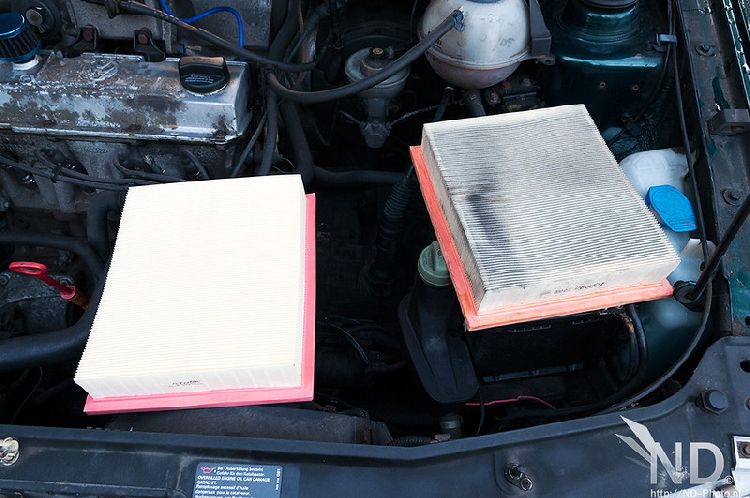
Image Credit: Flickr
The engine needs a mix of gas and air, and that’s the job of the MAF sensor. But the car fetches air from the environment, so the air filter plays a big role in enhancing the performance of your ride. Located inside the cabin, right below the glove box, the air filter keeps the dust and debris out from reaching the engine.
Solution:
Cleaning the air filter will help the engine regain its performance, and your car will run smoothly. Or you can replace the air filter if it has worn out.
Never run your vehicle without an air filter, as dust will accumulate inside the engine, which may lead to ceasing the motor.
6. Malfunctioning Oxygen Sensor
There is an oxygen monitoring sensor in both gas and diesel cars. The primary purpose of this sensor is to determine the amounts of gasses that leave the vehicle. The electronic module also figures out the air and fuel mixture for better combustion inside the engine.
If this sensor malfunctions, the motor won’t get enough fuel and air it needs. As the sensor will think the car is releasing more gasses, so it would contain the supply of fuel. It even leaves a negative impact on the environment due to the higher release of Co2.
Solution:
Replacing the oxygen sensor is the only solution that will help in such conditions. If you have a good know-how of the vehicle, replace it on your own. Or you can hire a car mechanic to inspect and replace the oxygen sensor.
7. Faulty Ignition Coils
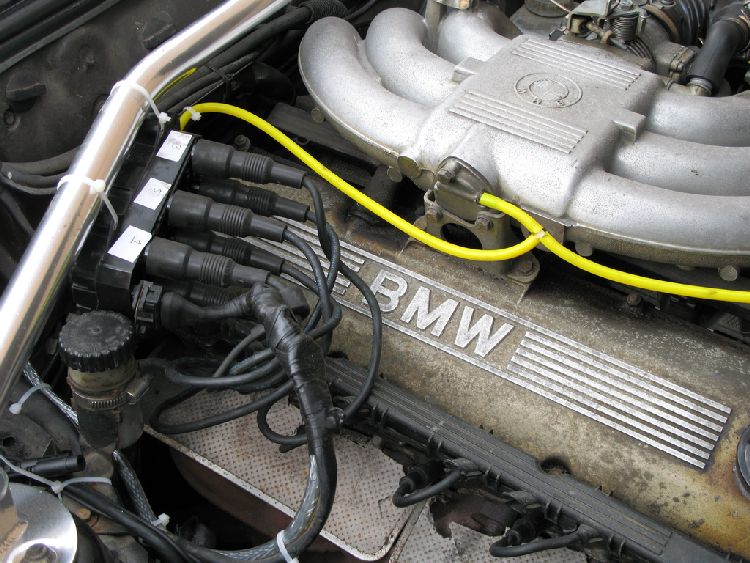
Image Credit: Wikimedia
Your car’s engine needs 20,000 volts to start, and this is the purpose of the ignition coil. These coils take 12 volts from the car’s battery and convert it into 20,000 volts required by the vehicle. Unfortunately, if the ignition coils get faulty or bad, the motor won’t get enough air and fuel mixture, which results in poor performance.
In some cases, the engine can also stop providing power to the wheels, and your car will come to a halt. The only thing you’ll see is the RPM rising while the vehicle will remain stationary due to no power.
Solution:
The only possible fix to this problem is replacing the ignition coil. The coil may go bad if you have driven your vehicle a lot or driven it poorly. You’ll see a rapid change in the performance of your ride after getting the coils replaced.
8. Bad Cylinder Compression
Bad cylinder compression is a major cause that results in dropping the vehicle’s performance. The cylinders inside the engine are sealed properly in order to contain the explosion and supply power to the pistons.
When there is a leak in any of these cylinders, the explosion leaks and does not provide the entire power to the engine.
Solution:
Bad cylinder compression is a serious issue and should only be fixed by an expert car mechanic. In worse cases, the mechanics may also recommend changing the entire cylinder. If your car is under warranty, get in touch with the dealership.
9. Damaged Fuel Injectors
Another reason why the vehicle loses power is because of the bad fuel injectors. The purpose of these injectors is to spray fuel in each cylinder. If you have a four-cylinder car, your vehicle will have four injectors.
The injectors can get clogged after some time due to the impurities in the fuel, and they do not spray adequate gas/diesel inside the cylinders. And when the cylinder gets less fuel, it delivers poor performance.
Solution:
Only an expert mechanic can inspect and replace the fuel injectors of your vehicle, as it involves skill and is a daunting task. Or check out this video if you want to do the job in your garage.
Final Thoughts
These are the main issues behind your car losing power when accelerating. Inspect all nine components that I’ve listed here, and take your car out for a spin. There are high chances that you won’t see the power drop again, but if the issue persists, it would be great to see a local mechanic.
Never drive your car if it loses power or gets overheated when you accelerate. The best solution is to call the tow company to safely transport your vehicle to the nearest garage.
Last update on 2024-07-26 at 19:59 / Affiliate links / Images from Amazon Product Advertising API

